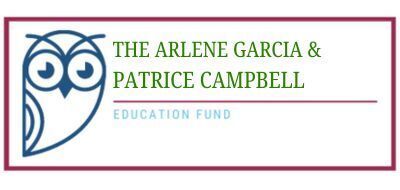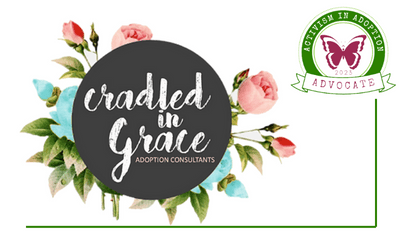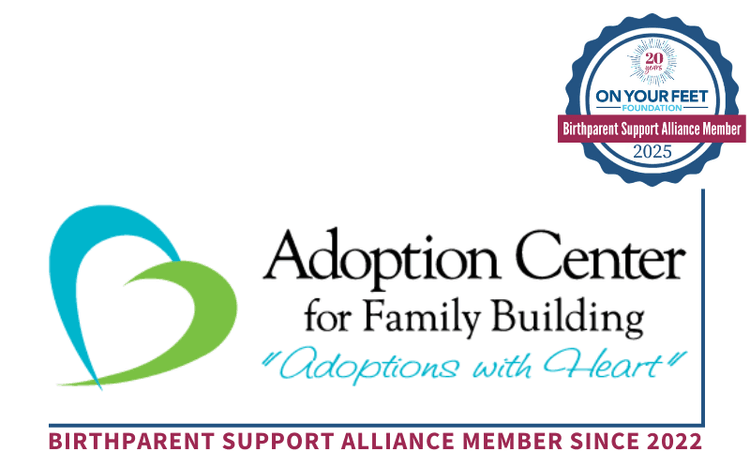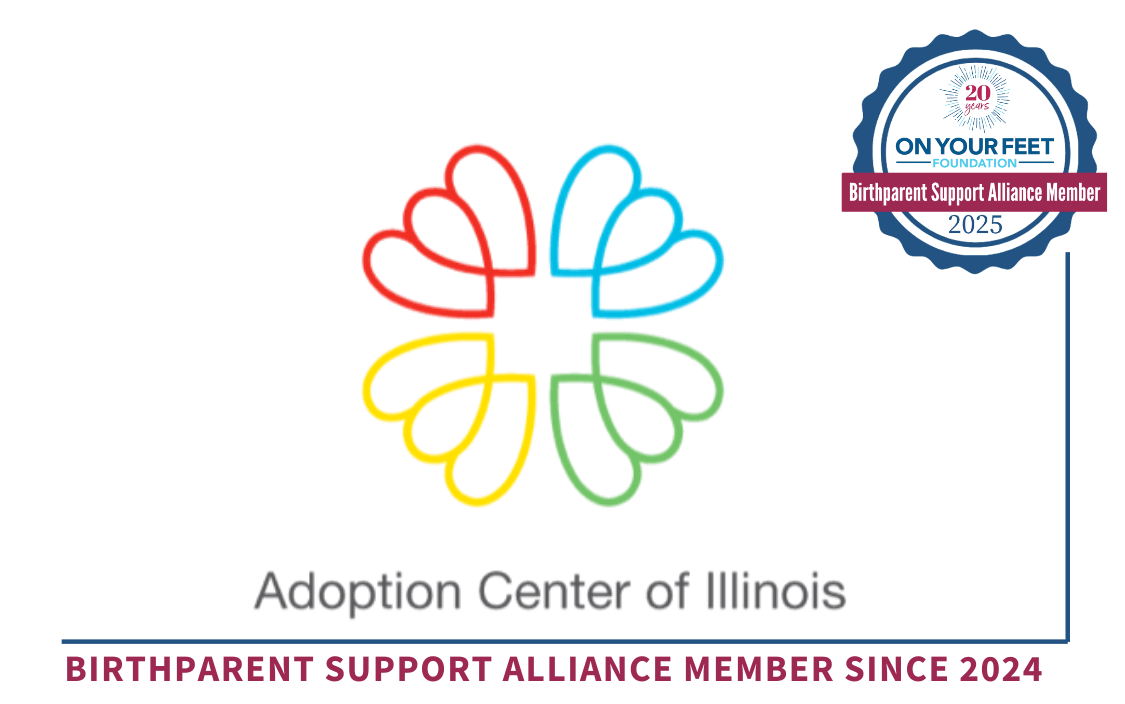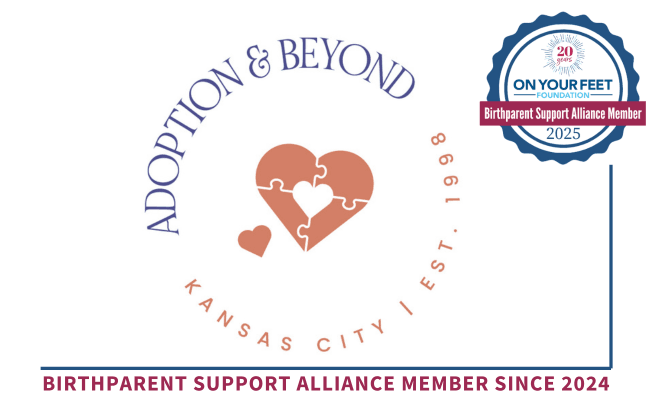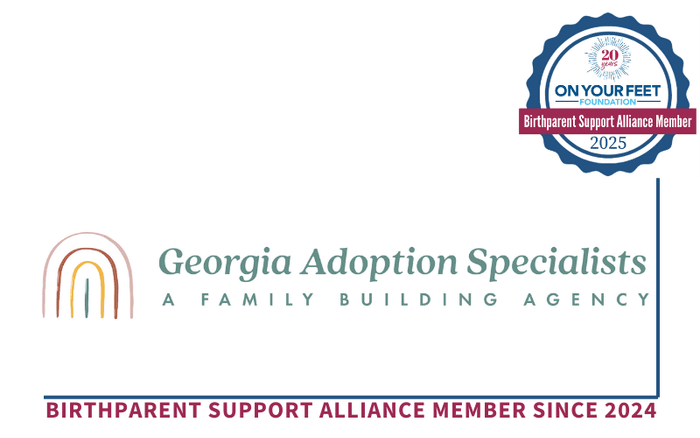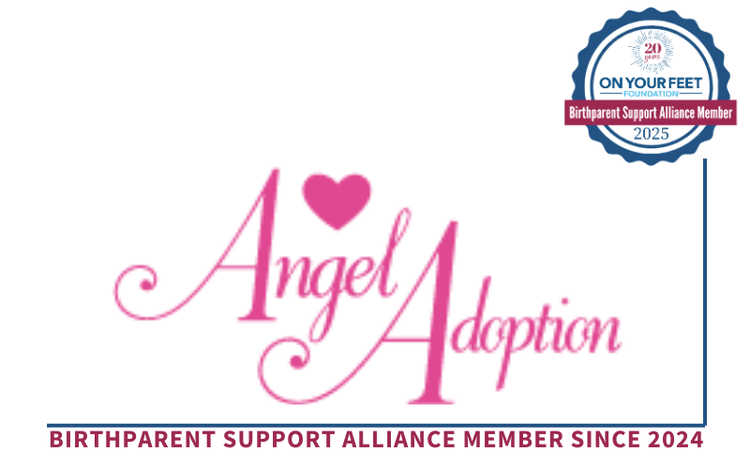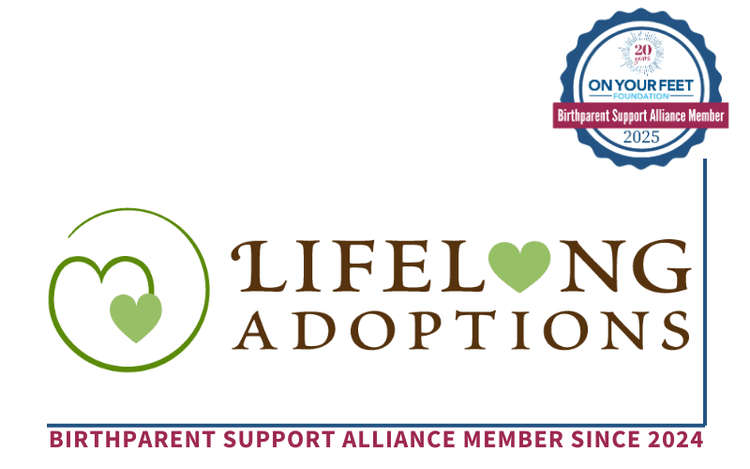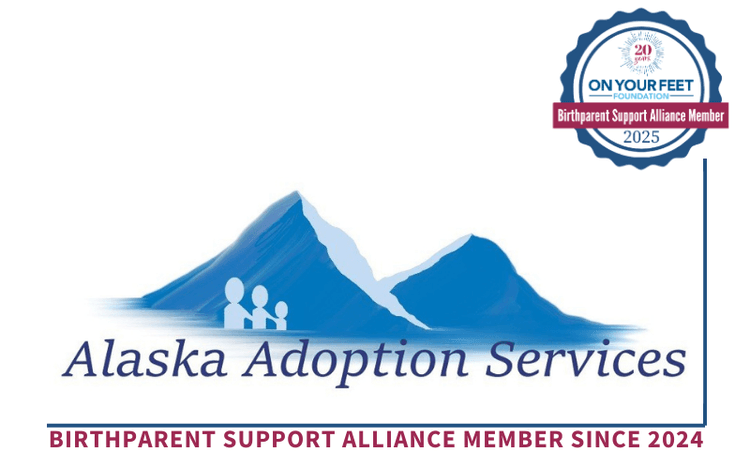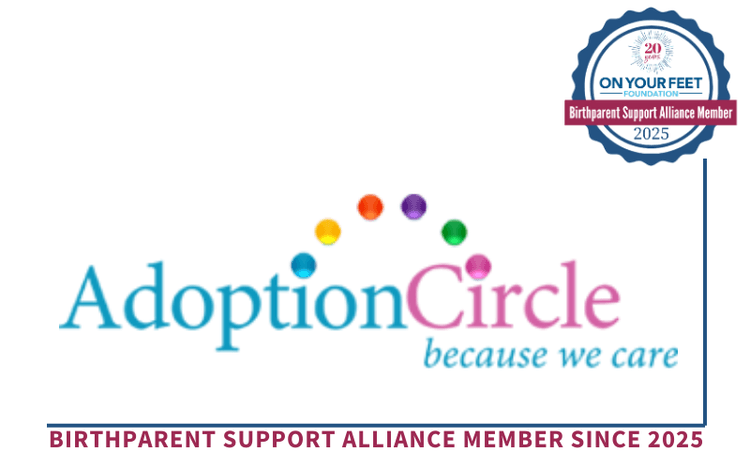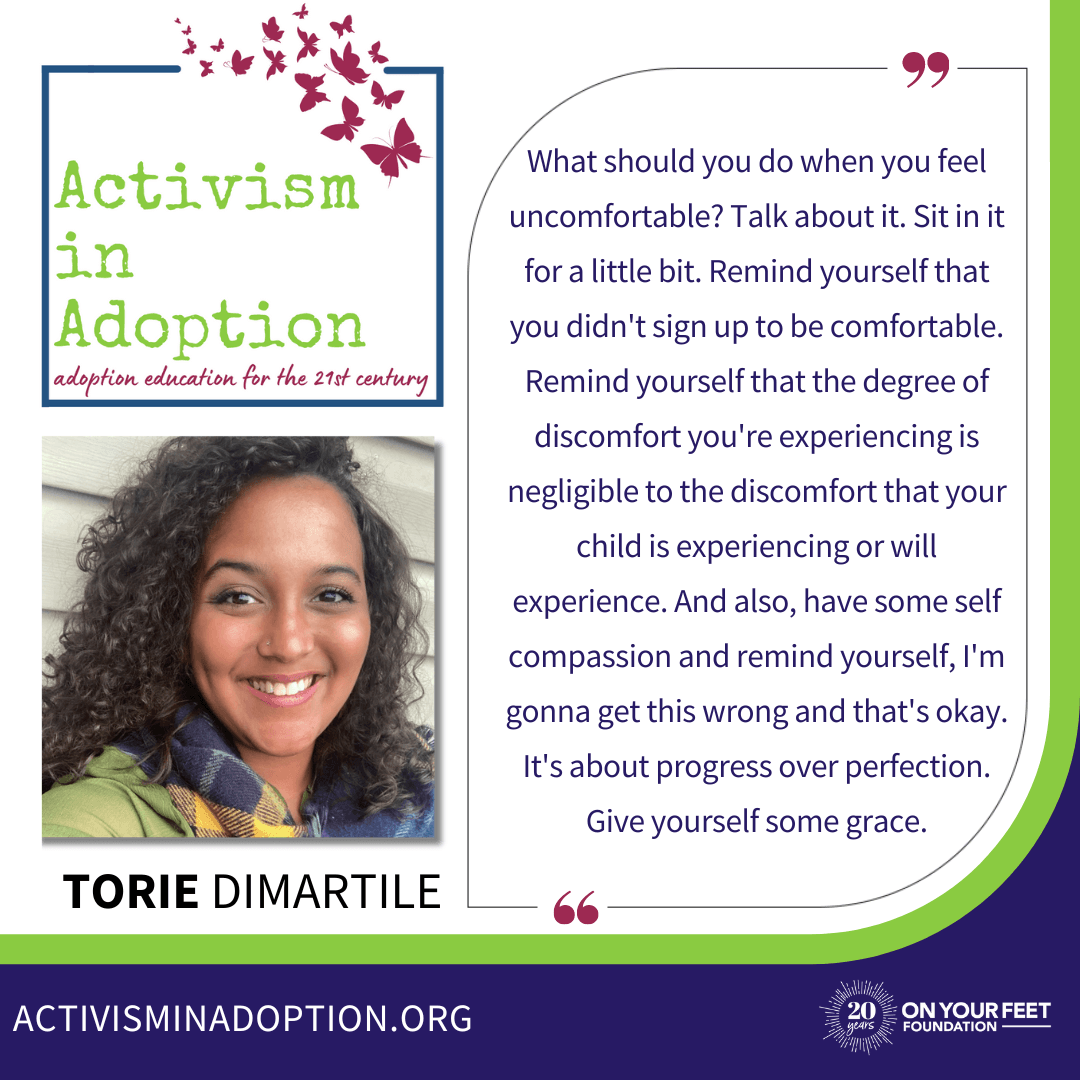
Our upcoming Activism in Adoption speaker, Torie DiMartile, needs no introduction to anyone familiar with adoption education. When she isn’t educating prospective and current white adoptive and foster parents and empowering transracial adoptees through post-placement support services through Wreckage and Wonder, she is busy writing her dissertation, as a PhD candidate at Indiana University. We can’t imagine a better way to kick of Activism in Adoption in 2024 than to have Torie come and speak, as she shares preliminary insights from her research into the challenges Black adoptees face when being raised in white families, and the important changes and shifts in mentality that need to happen for adoption professionals and adoptive parents to make transracial adoption safer for racial minorities.
We had the opportunity to sit down with Torie recently, to learn a little more about her research, and how her findings can help everyone in the adoption constellation.
Let’s start with the basics: tell us who you are, and about your relationship to adoption.
My name is Victoria DiMartile and I was placed through domestic infant adoption with Italian-American parents in 1993. I grew up in a very conservative, predominantly white suburb outside of Cincinnati. As you can imagine, as a biracial Black child raised by white parents, I lived in a lot of confusion, stares and questions as I navigated life as pretty much the only children of color (with the exception of my biracial Black sister who was also adopted) on our street, school system and larger community.
So that's my direct relationship to adoption. My academic and professional trajectory with adoption came much later. I never planned to be someone that publicly discussed adoption on social media platforms. I never planned to be someone that became active in adoption education and consulting. I never planned to make adoption the topic of my dissertation. I went through college convinced I was going to be an English major; I was going to go on to write books and create stories. And then I took an Anthropology class and was absolutely captivated by all the stories of different cultures and peoples. We talked about race, gender, identity, kinship, and belonging. I felt very safe in that class and resonated with the themes. That’s when I began to develop a deeper and more nuanced sense of Blackness and began to acquire the language to understand, explore, and analyze my own experience. I realized Anthropology is about people, culture, and their stories. I can write about people. It seemed like a great way to merge two interests.
What is your dissertation research focus?
I'm a PhD candidate in socio-cultural anthropology at Indiana University. I use modern U.S. transracial adoption as a lens through which to understand larger issues of race, family identity and national belonging in the United States. That's the broad topic and exploratory approach. More specifically, I focus on adult Black transracial adoptees as an understudied sub-population of transracial adoptees. There currently exists a significant amount of research focused on Asian international adoptees, and it's a really impressive body of literature that’s become central to critical adoption studies and Asian diaspora. My analysis of adoption is greatly informed by the work of scholars like Kim Park Nelson, Michelle Kim, JaeRan Kim, Eleana Kim, Elizabeth Raleigh, and Kit Myers who have foregrounded adoption as a process fueled and enabled by racial, economic, and reproductive and geopolitical violences and inequities. We are highly indebted to the work that they've been doing on adoption, laying a foundational framework for how adoption can be studied and understood. However, focus on the experiences of African-American and African diaspora individuals being raised in white homes in the U.S. is less prominent and needs to be more central to how we study adoption as a phenomenon. The intersecting histories of enslavement, Native child removal and land dispossession, and the reproductive oppression of Black women, revolve around family separation as a cultural and political tool of subjugation. If we are to understand the societal and relational dynamics of adoption as a deeply racialized project, we must attend to the ongoing and historical racial divide of the U.S. and its impact on Black transracial adoptees. So my dissertation focuses on Black individuals raised in white homes and how they navigate race and kinship within the current racial context of the U.S. How are the current and ongoing social movements like Black Lives Matter and the racial violence that defined 2020 impacting Black transracial adoptee’s sense of belonging and racial identity?
My specific positionality also informs the questions that I am asking, as a Black person raised in a white family and who really struggled during the 2020 National Race Reckoning. My research looks at how that 2020 National Reckoning, and the ongoing racial reconciliation and racial violence that's coming out of that time period, has shaped how adult Black transracial adoptees understand and express their Blackness. That’s the crux of my research. I'm a qualitative researcher so I do life history interviews and participant observation mostly, but I’ve recently branched out into qualitative surveys to better understand some of the major themes and patterns which arose from the interviews. Specifically, the people I interviewed talked about racial, physical and sexual abuse and harm in their adoptive homes and the idea of the violence of whiteness. When these new topics started popping up in my interviews, I had to ask myself, is this just Black transracial adoptees that are experiencing this, or is this an experience that transracial adoptees have in common? So that's why I created this survey, which On Your Feet Foundation has very generously disseminated, helping connect me to participants. It is highly stigmatized for adopted people to discuss instances of abuse within adoptive families or talk about the impact adoption has had on their mental health. So I hope the results from that survey help build out more nuanced knowledge about those experiences.
Can you unpack the phrase violence of whiteness for us?
I can, but I feel like the best way to describe it is through some examples of it.
For instance, many, many participants in my research talk about what is often referred to as color blindness, which I’ll unpack more in my talk. Color blindness entails:
- dismissal of race as a significant and meaningful factor which may negatively impact a person’s life experiences and opportunities
- denying racism by emphasizing sameness or equal opportunities.
Many people say I don’t see color as a way of saying they don’t treat people differently because of their race. That’s a nice sentiment, but it's factually wrong. We do see color. So colorblindness is more accurately the refusal to recognize the discriminatory and oppressive systems that exist to subordinate those of certain races. Parents often recognize that their child is racially different, but don’t necessarily believe that those racial differences create systemic inequalities or impact their child’s daily life. My study participants experienced colorblindness day in and day out, consistently having the reality of their experiences of racism denied and dismissed by white adoptive parents. They were coming home from school as children to share that they were called the n-word on the playground, or there was a classroom discussion about enslavement and someone asked them how much they would have cost as a slave, and the teacher didn't correct that student. They're coming home with those painful experiences and their parents are saying, well, that person just had a bad day, or you're being dramatic, or are you sure that's how you experienced it? That approach is destructive, injurious to a child’s sense of self and when parents (or others) gaslight them and deny those hurtful experiences they are taught to diminish their own humanity.
Children raised by white parents may absorb colorblind ideology from their parents and withhold their feelings on race, creating disconnection and the possibility for familial dissolution if that disconnection continues over time. So many of my study participants ended up moving through life doing a lot of self-erasure, a lot of self-denial, a lot of self-gaslighting. They internalize this ideology and inflict it upon themselves, creating a lack of self-trust and positive self-esteem. They then go on to perpetuate racism against other people of color who may, for their own safety, reject transracial adoptees as legitimate members of the racial community. It is harmful at an individual, interpersonal, familial and community level, it has ripple effects, that’s what I mean by white violence.
You are our January 2024 Activism in Adoption speaker. What are you speaking about?
I’ll be discussing preliminary insights from my research, in particular challenges Black adoptees face being raised in white homes and the important changes and shifts in mentality that need to happen for adoption professionals and adoptive parents to make transracial adoption safer for racial minorities. So much of adoption education focuses on more concrete activities that can foster a child’s positive racial identity and connection to culture, like learning about appropriate skin and hair care, attending heritage events at a local library, or building a multiracial community. Those are all very important suggestions for creating a safe and affirming space for a child of color. However, I find the true gap in adoption education is focusing on the personal beliefs and attitudes that prospective adoptive parents have about race and ethnicity and providing them with necessary tools for unraveling those preconceived notions. This session will focus on insights from adult Black transracial adoptees who reflect on where their parents could have improved. The talk will lean less into a “checkbox” of do’s and don’ts and more so into what it means to develop the relational skills and anti-racist lifestyle that’s crucial for building a lasting and meaningful connection with one’s child of color. Because when discriminatory and harmful attitudes about race and ethnicity persist in insidious ways inside a home, no amount of external validation is going to undo the harm of unconscious racism within an adoptive homes.
As you go through your dissertation data, what did you find that surprised you the most? Did you find anything you didn’t expect to see?
I often feel that, as someone who both experiences this and researches it, it's often hard to be surprised by what I see in the data, but something I am seeing a lot is that so many people surveyed came to the table with very intense and visceral experiences of abuse by their white adoptive parents. That was never a question on the survey or in any of the interviews - I never asked explicitly about abuse, or emotional or physical violence, or mental health. But almost everyone ( I’ve interviewed 27 people thus far) mentioned some kind of physical, sexual, emotional, and sometimes racialized versions of all of those forms of abuse by adoptive parents, and the detrimental impact that that had on their mental health. Many of them discuss depression and suicide attempts, as a result. And I know, of course, from my own experiences and that of my friends, that that's an experience people have. But it's just not something I anticipated people foregrounding without me asking about it. I'm asking questions like, tell me about what it was like growing up in a white neighborhood or describe to me what your parents did to help you feel more culturally connected. I'm not asking about those other topics, but they came out during the telling of their story.
The other thing I saw is that many people who felt loved and cared for by their adoptive parents also experienced anxiety, depression, and other mental health issues. It was clear that for many adoptees, feeling loved didn’t negate the possibility that there were significant challenges in their journey. Love and pain or sadness coexisted for many. And that's something that we fail at just as humans. We aren’t great at seeing things that aren’t completely black or white: there's just absolutely no nuance whatsoever, and that becomes exacerbated when it comes to adoption. That's another thing I'm really determined to try to foster as a result of my work; that ability to see that opposing things can and do coexist.
It can be really difficult for white adoptive parents when they get to the realization that they might be the ones doing the most harm to the people that they love the most. That's a devastating moment, because once you start unpacking it, a lot unravels.
There are so many families that I've had that conversation with. It is a devastating realization, and as an adoption educator, sometimes when they get to that point where they start feeling uncomfortable, they block me, unfollow me, and take other steps to make sure that they won’t be exposed to my content, so that they don’t have to recognize that they need to move beyond the self-centered approach to adoption. I feel for them because I know that they are just stuffing it down and trying to bury it, but this is going to come out at some point, when your kid has an opinion of their own. And the work is going to be so much harder if you push it off until that happens, because when you create a pattern and a habit out of burying everything that makes you feel uncomfortable, everything you stuffed down is going to explode at some point. And that explosion ends up being your child's mental health crisis or the child extracting themselves from the family.
Is that where the ungrateful adoptee narrative comes from?
In adoption, the narrative is, I was a good mother to them. I did all of this, this, this and this and this. How could they possibly feel so negatively? But it is very common for biological children to go back to their parents and say, yeah, you really messed this part up. Confronting parents about mistakes from childhood happens with adopted and biological children. But we just don’t hold the same space for adopted people, because fundamentally, we don't believe they deserve it. At the root of comments about adoptees being ungrateful is a persistent cultural belief that non-biological children are second best, come with baggage, may have issues, be it physically or emotionally. And through adoption, they were chosen in spite of all that, almost as if they should be grateful they got anything at all. When we demand gratitude from adoptees we convey the message that they were unwanted, inferior, deficient, second-best and because of that it took an act of extreme altruism and selflessness to welcome them in. What person would gladly welcome that kind of child? A saint, a hero. And when adoptive parents are positioned as a saint or hero, anything less than worship of them is deemed unacceptable and ungrateful.
What would you recommend as a course of action to white adoptive parents and potential white adoptive parents? How can they do better for their child, being raised in a white family?
I would say if they haven't yet adopted, interrogate your motivations first, and go to therapy. And then afterwards, go to therapy still. And you know, I say this all the time, but I just feel like I can't ever say it enough. Many adoptive parents think, I need to actively prevent this child from ever experiencing harm, confusion, frustration, grief. The majority narrative of parenthood should be that your role isn't to protect your child, it's to prepare your child, and we totally throw that notion out the window when it comes to adopted children. I think that desperate need to protect comes partially from this sense that another woman has given us her child, and we have this sort of astronomical debt to pay for that, and how we pay that debt is by ensuring the child never experiences grief, loss, or trauma. And that's not doing a birthparent's choice any service. It's not doing an adopted child's experiences any service. So, rather than trying to create a to-do list and micromanaging all of these scenarios in order to shield painful emotions, I hope adoptive parents are proactive in teaching their child how to process their pain and healthfully integrate their trauma into their life. Because if adoptees are constantly being shielded, they're also going to perceive that their adoptive parents need to be shielded from painful emotions, which means they're not going to share painful experiences with you, which means you're not going to have a connected and healthy relationship with your child, and it’s the child who suffers most in that scenario.
I would also say that conviction comes before action. So many white adoptive parents believe that if they take a specific set of action steps – you know, get the right color dolls, enroll their child in an all-Black school, make sure that they have proper skin and hair care, make sure they have racial mirrors, etc. - they will get it right. But if there was no conviction behind those actions, and those actions are just ornamental, kind of vacuous steps in order to keep you out of racism jail - that’s when families end up in difficult places. You have to be convicted first, that Black people are people, are valuable, have humanity, deserve respect, are legitimate and knowledgeable leaders. Those have to be your beliefs, and then guess what? Your actions will follow through that belief system. I see parents scrambling to do all the right things, and I think, if you just lived out of a personal ethic of valuing Black people, then all your decisions would reflect that. You'll know what to do because you're already living it as a lifestyle. That's something that I think is missing in education, because too many people are led to believe that if they just do all the right things, then they automatically become anti-racist, and that's not how it works. You don't do the actions and then the belief comes; you do the belief and then the action follows.
What advice do you have for white parents who are starting to do that work, and are re-educating themselves so that they can show up better for their adopted children? And what should they do when they run into things in that educational process that make them feel uncomfortable?
I think it's really important for white adoptive parents to be in community with other white adoptive parents and those communities need to have accountability in them. I think it's important because a lot of times when white people feel uncomfortable, they go to a Black person, and then they cause that person harm. You need to be able to go to other white people who are also on the journey to anti-racism so you can talk through and process that journey together. And that can be informal like a texting buddy and you two keep each other accountable, or it could be a white parents support group that is facilitated and led by a paid educator of color. You need to find a place where you have freedom to make mistakes without those mistakes harming non-white people. You have to have the freedom to get critical feedback from one another.
What should you do when you feel uncomfortable? Talk about it. Sit in it for a little bit. Remind yourself that you didn't sign up to be comfortable. Remind yourself that the degree of discomfort you're experiencing is negligible to the discomfort that your child is experiencing or will experience. And also, have some self compassion and remind yourself, I'm gonna get this wrong and that's okay. It's about progress over perfection. Give yourself some grace. I always tell my mom, you don’t have to always be drinking from the fire hydrant of anti-racism. It’s more sustainable to take a sip a day. Progress over perfection.
For tickets to Torie's upcoming January 31st talk, please visit Activism in Adoption's upcoming sessions page. Most adoption education ends before an adoption is finalized, but where other adoption education programs stop, we are just getting started.
For more information about Torie, you can follow her on Instagram, or Facebook. And don't forget to check out Wreckage and Wonder, which educates prospective and current white adoptive and foster parents, empowers transracial adoptees through post-placement support services, and invests in family preservation and reunification for vulnerable and minoritized communities. Are you a transracially adopted person? Torie's survey, mentioned above, is still recruiting participants. Click here for more information, and to add your voice to help better the lives of all transracially adopted people.


